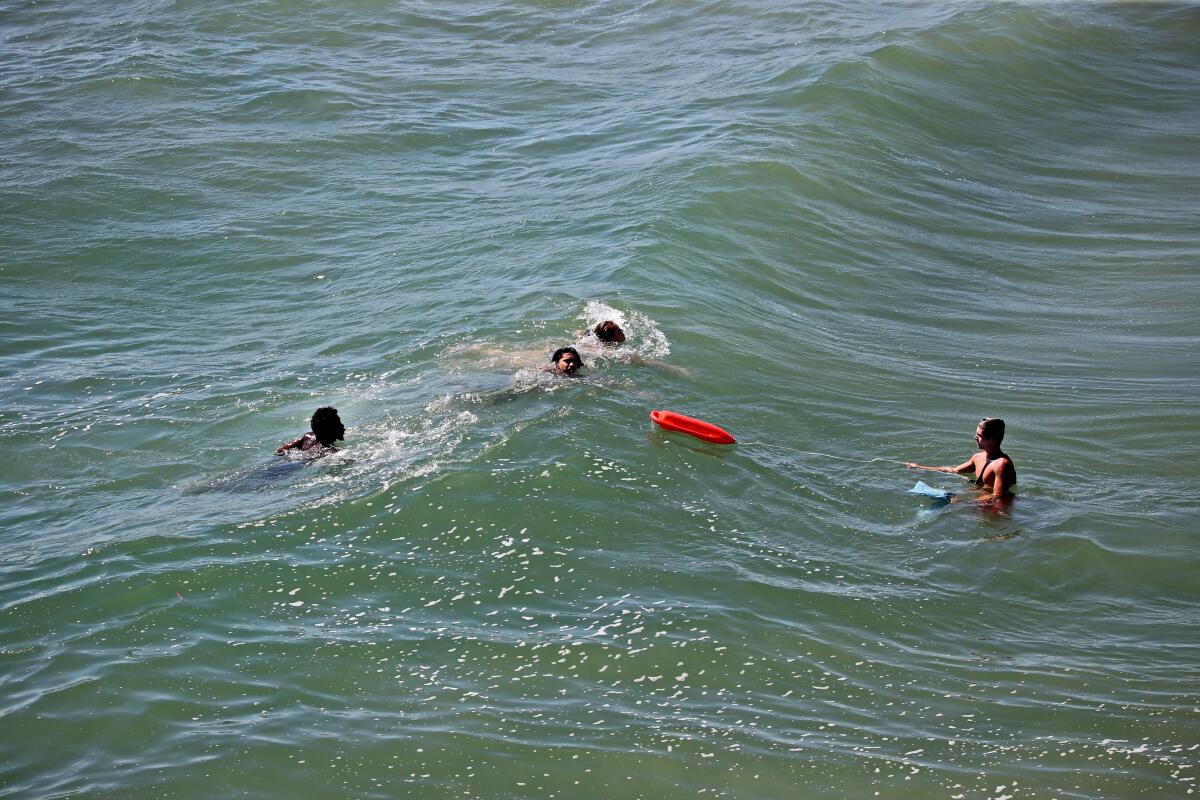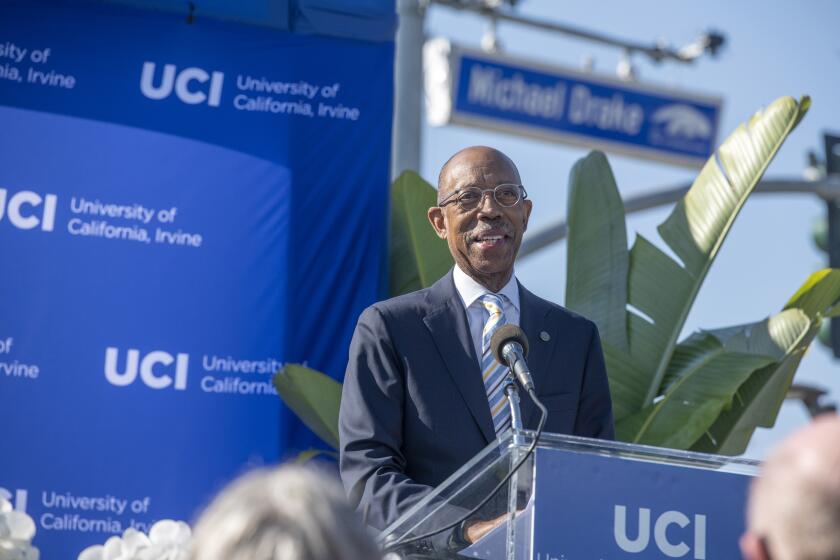Lifeguards across O.C. state beaches willing to take union dues lawsuit to Supreme Court

State-employed lifeguards are suing their union, claiming the organization is compelling employees to remain members and pay dues against their wishes, and continuing to press for a class-action lawsuit, even after recently losing a federal appeal.
More than 20 named plaintiffs employed by the California Department of Parks and Recreation — including lifeguards at Huntington, Bolsa Chica, Crystal Cove and San Clemente state beaches — contend they were deceived and coerced into joining the union, denied fair representation and shut down when they tried to resign.
In a January 2020 complaint filed with the U.S. District Court against the California State Law Enforcement Assn. (CSLEA) and State Controller Betty Yee, attorneys maintain workers were denied their 1st Amendment right to withdraw from the union and not have dues taken out of their paychecks.
“Just as it is unconstitutional for the state to require employees to fund the Democratic party, it’s unconstitutional for the state to require employees to pay union dues against their will,” said William Messenger, an attorney with the nonprofit National Right to Work Legal Defense Foundation who is working on the pro bono case.
Messenger cited the 2018 Supreme Court case Janus vs. the American Federation of State, County and Municipal Employees, in which justices ruled 5-4 that union payments or fees could not be deducted from the wages of non-members without their affirmative consent.
The lawsuit describes how employees were historically offered union membership applications without knowing they could opt out of representation. They were told even those who didn’t sign the agreements would have to pay an “agency” or “fair share” fee as non-members, so many signed on.
Jennifer Marshall, a seasonal lifeguard II at Huntington State Beach since 2011, remembers learning about CSLEA when she first arrived on the job at 19. She recalled going along with the crowd as people signed agreements.
“They really pushed us to sign up for the union without a lot of information behind it,” the Huntington Beach resident, now 30, said Thursday. “It was kind of a sign-the-papers-and-we’ll-talk-about-it-later kind of thing.”
In the years that followed, Marshall didn’t have many encounters with the union, despite having $50 regularly taken out of her paycheck. She wondered what she was paying for.
“It just wasn’t clear to me,” she said.
The lawsuit was filed on July 29 in U.S. District Court for the Central District of California.
In 2019, CSLEA and the state added a “maintenance of membership” clause into a memorandum of understanding amending their collective bargaining agreement. It stipulated employees covered by the new four-year contract would be required to remain dues-paying members for the duration.
A provision indicated employees wishing to withdraw from the union could do so within the 30-day period before the contract’s expiration in July 2023. Membership applications were updated to read: “Per the Unit 7 contract and State law, there are limitations on the time period in which an employee can withdraw as a member.”
That same summer, Marshall and several others learned they’d had the right to opt out and sent certified resignation letters in September but were told they’d already missed the 30-day window under the old contract and would have to wait until June 2023.
Messenger said lifeguards were neither provided copies of the new contract, nor informed of the resignation guidelines. He believes the maintenance of membership agreement is just as unconstitutional as charging fees to non-members.
“You literally have to kick the ball through the uprights of this 30-day escape period,” he said Wednesday. “This is effectively a restriction of when employees can exercise their rights under [the 2018 Janus ruling].”
CSLEA did not respond to multiple requests for an interview or to provide a comment for this story.
The lifeguards’ complaint was heard by U.S. District Court Judge Dana M. Sabraw, who ruled in September 2020 to dismiss the case on the grounds that the Janus ruling applies only to employees who’ve declined union membership.
“Janus is inapplicable to [the] plaintiff’ situation, because plaintiffs are union members,” Sabraw wrote. “By signing CSLEA membership applications, they affirmatively consented to union membership, including limitations on withdrawal and dues reductions.”
Workers appealed the matter to the 9th Circuit Court of Appeals and were disappointed when an April 28 opinion by a three-judge panel upheld Sabraw’s ruling.
“The lifeguards do not argue that union membership was a requirement of employment and agree that they voluntarily chose to join the union,” they wrote. “The district court correctly concluded that the holding in Janus applied to nonunion members only, and because the lifeguards are union members, Janus is inapplicable here.”
Dissatisfied, attorneys filed a petition last week to have the matter heard “en banc,” before a fuller panel of 9th Circuit judges. Messenger said he and lead attorney Mariah Gondiero are prepared to take the case to the Supreme Court, if necessary.
“The constitutionality of restricting when people can exercise their rights is a big deal,” he said. “That’s why these types of cases matter.”
All the latest on Orange County from Orange County.
Get our free TimesOC newsletter.
You may occasionally receive promotional content from the Daily Pilot.





